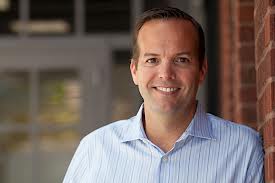 On Friday, jurors concluded that Ellen Pao, a former junior partner at Kleiner Perkins Caufield & Byers, was neither discriminated nor retaliated against by the famed venture capital firm when she was passed over for promotions and ultimately fired.
On Friday, jurors concluded that Ellen Pao, a former junior partner at Kleiner Perkins Caufield & Byers, was neither discriminated nor retaliated against by the famed venture capital firm when she was passed over for promotions and ultimately fired.
It was a dramatic conclusion to the five-week trial of Pao, who is today the interim CEO of the site Reddit. It’s also the beginning of more discrimination lawsuits in Silicon Valley, say employment attorneys who’ve seen the same patterns across the securities, legal, and medical industries over the years and who believe the smaller, more insular, male-dominated venture industry has just been set on the same path by Pao’s high-profile case.
In fact, they say, both junior employees and their firms can learn a few things from what just happened.
Most importantly, it will never be easy, winning a discrimination claim in court. According to longtime employment attorney Gary Phelan of the East Coast firm Mitchell & Sheahan, cases today tend to feature much more subtle types of discrimination than they did 10 or 20 years ago, meaning there are “no smoking guns” typically but rather “a series of pieces that, put together, may or may not equal discrimination.”
In Pao’s case, the jury concluded that the pieces didn’t add up to a judgment against Kleiner, but that doesn’t mean discrimination based on gender didn’t play any role. “In many trials,” says Phelan, “part of it may be gender, age, race, disability, personality, performance – it’s never clearly one thing or another.” (If it were, it would likely settle before reaching a courtroom.)
Saving up material for a court battle can prove a double-edged sword, too, says Phelan, referring to the 700,000 pages of documents that Kleiner’s defense team accused Pao of having amassed over the years.
While junior partners might be inclined to record even more of their contributions in the wake of the Pao verdict, Phelan warns that clients with “lots of documentation” are “encouraging and scary at the same time. If you have a client who perceives every negative as discrimination and writes down everything, that’s not necessarily a good sign. It’s often someone who may be paranoid or someone who, by documenting everything, is perceived as trying to build a case that otherwise isn’t there.”
That doesn’t mean firms should sit back and relax for now.
Many have probably already taken a harder look at the way their partnership and employee agreements are written and whether, if they are sued, they can send a case to arbitration, where the proceedings are private and legally binding. (The arbitration agreements that Pao had signed related to Kleiner’s agreements with its limited partners, not an employment agreement with the firm. That’s why Pao was able to land the court case she wanted.)
Firms need also think more about their HR practices. “You have people in this industry who say they’re changing the world, and in many ways they are,” says Phelan. But “thinking that you’re dealing with much bigger things than unconscious biases and HR practices — viewing them as a nuisance — tends to work to the disadvantage of females.” (Kleiner’s lack of well-defined HR policies didn’t hurt it in the end; the next firm might not be so lucky.)
Not last, more firms will need to hire more women into their ranks, even if it takes longer than many women might like. “Kleiner won, but it hurt them, and venture firms shouldn’t conclude that they don’t have to worry about this,” says Phelan.
“Change is always incremental” but lawsuits have slowly begun to transform numerous industries over the years, including Phelan’s own. (According to the research organization Catalyst, women accounted for 22 percent of law firm partners in 2013, up from roughly 13 percent in 1995.) He says “there will be more” lawsuits that target venture firms, as well. “Once something like this case gets so much attention, people start to wake up and pursue their rights.”
Longtime employment attorney Cliff Palefsky of McGuinn, Hillsman & Palefsky in San Francisco agrees. The Pao lawsuit “has had unfortunate effect on a lot of people, including Ellen and Kleiner’s privacy and dignity,” he says. “But in terms of the debate it has created and its focus on the subtle forms of discriminations that absolutely go a long way in explaining the dearth of women in technology and venture capital, a social purpose has been served by it.”
One public lawsuit “will do more to change the environment than 100 cases that land in arbitration,” Palefsky adds.











